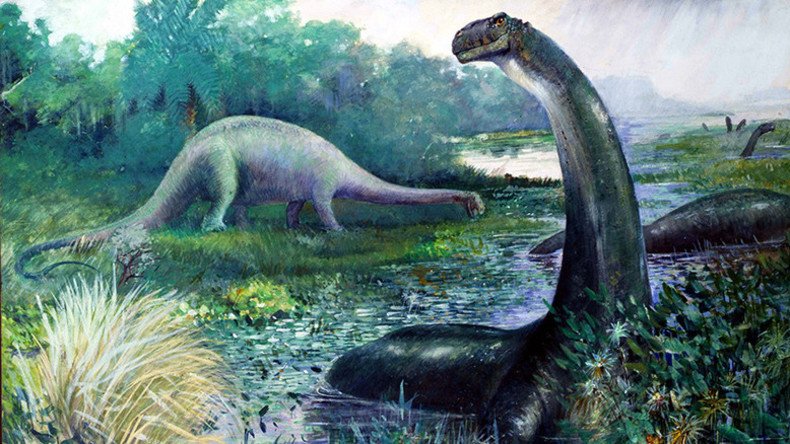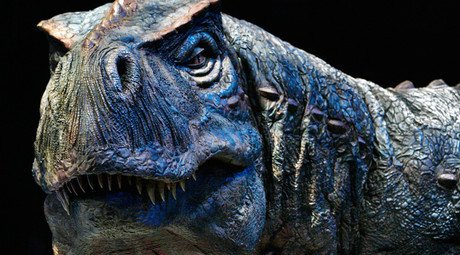Giant footprints lead scientists to Scotland’s biggest dinosaur site

Scientists have discovered the biggest dinosaur site in Scotland on the Isle of Skye after stumbling across giant footprints fossilized into coastal rock.
The 70cm-wide footprints of massive sauropods are said to be roughly 170 million years old and were found by the University of Edinburgh’s School of GeoSciences in April.
The team of Scottish boffins were about to go home after a day in the field when they spotted the impressions in coastal rock quite by chance.
Dr Steve Brusatte told the Independent: “We noticed this depression in the rock that kind of looked like a pothole, and then we noticed another one and another one.
“They started to form this zig-zag pattern, and it dawned on us pretty quickly that these were the footprints – and the handprints – of these huge, long-necked sauropod dinosaurs.
“It was a chance discovery, we were more lucky than talented,” he added.
At the time the prints were made the area would have been the muddy bottom of a shallow lagoon, now long since turned to rock and often hidden by the tide.
The culprit is thought to have been a long-necked relative of the brontosaurus-type dinosaur.
Dr Tom Challands, also from the University of Edinburgh, told the Independent: “It is exhilarating to make such a discovery and being able to study it in detail, but the best thing is this is only the tip of the iceberg.
“I’m certain Skye will keep yielding great sites and specimens for years to come,” he said.
In August, a fossil foot suspected to be that of a small early ancestor of the ferocious Tyrannosaurus Rex was found on a Welsh beach.
Student paleontologist Sam Davies, who is in his third year at the University of Portsmouth, made the discovery while searching for fossils on the beach.
“It was pure luck that I found it. It was just sitting on top of a slab of rock,” Davis told the Guardian.
Experts believe the fossilized foot is from the same animal whose skeleton was found after a section of cliff broke away onto the beach last year. The local Jurassic cliffs are known to be a rich source of fossils.
The species lived around 200 million years ago, was only 19 inches tall and is a miniature version of the T-Rex.














